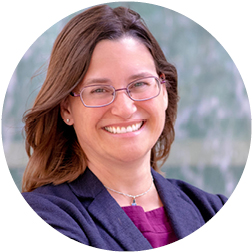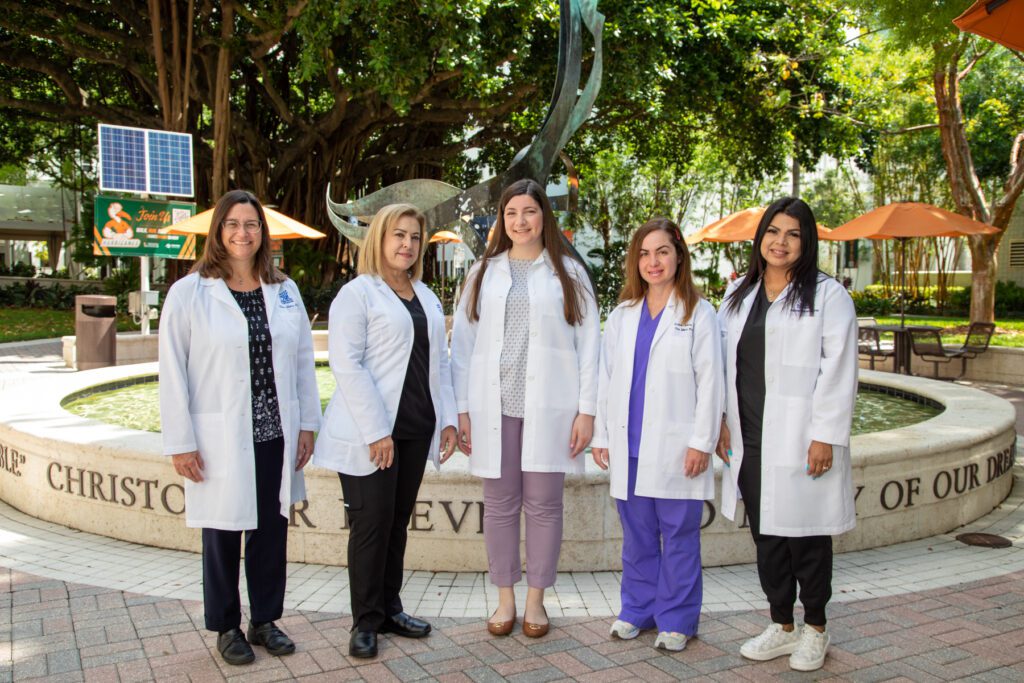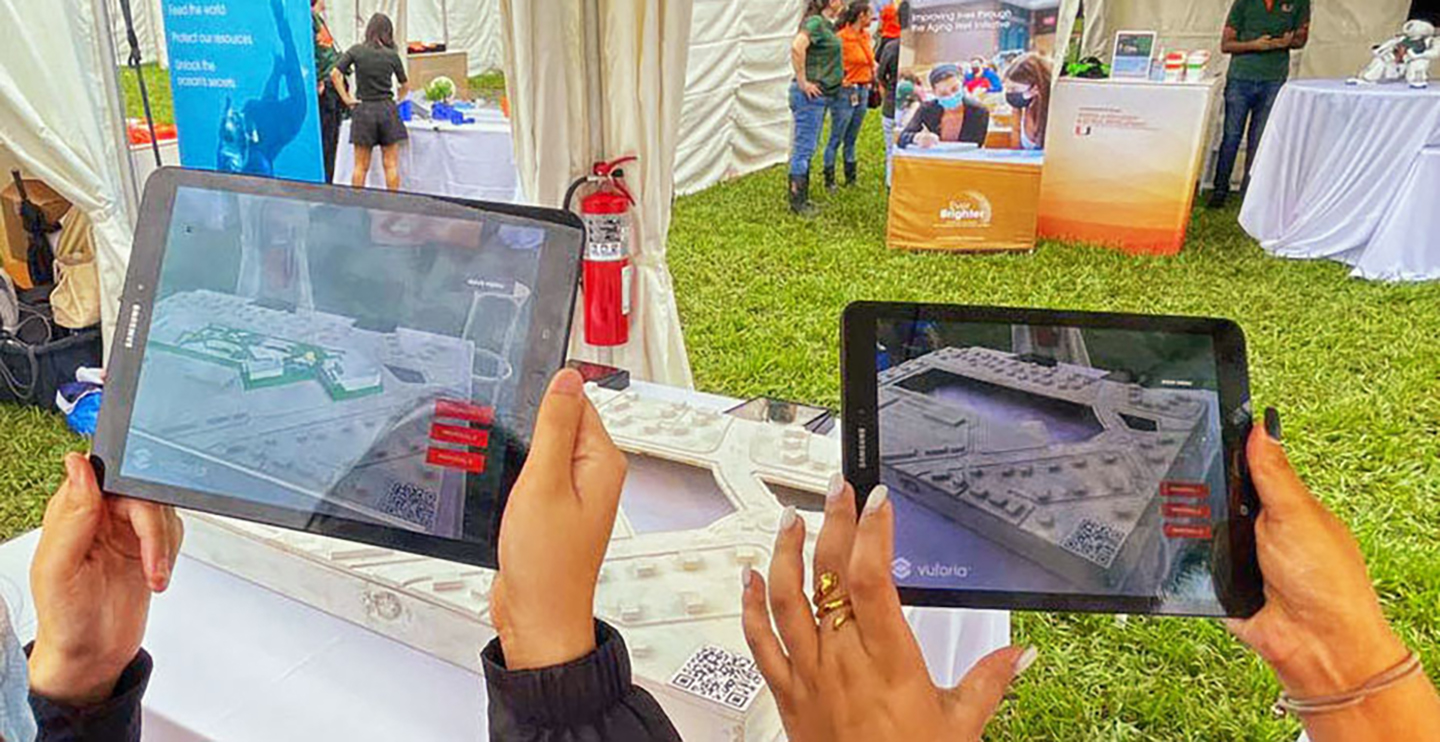Joey Schulz is looking forward to applying newly learned data science skills to his research into type one diabetes, a chronic disease with many long-term issues. “We could use deep learning algorithms to find the biomarkers to see if an individual has type one diabetes and why certain patients respond to treatment while others do not,” said Schulz, a doctoral student at the UM Miller School of Medicine. “This work, which involves massive amounts of data, could result in identifying lives that we could actually change for the better.”
“Medicine today is highly driven by
data research, and we want to educate
our students on advanced IT tools
and technologies so they can
become leaders in the future.”
 Schulz was one of a group of students at the Miller School who completed a two-week summer course, “Data Science for Bioinformatics,” offered through the Institute for Data Science and Computing (IDSC). “This important training course leveraged Python programming tools to provide students with hands-on experiences in data visualization, machine learning, and pipelines for bioinformatics applications,” said Ravi Vadapalli, PhD, Director, IDSC Advanced Computing Systems. “Medicine today is highly driven by data research, and we want to educate our students on advanced IT tools and technologies so they can become leaders in the future.”
Schulz was one of a group of students at the Miller School who completed a two-week summer course, “Data Science for Bioinformatics,” offered through the Institute for Data Science and Computing (IDSC). “This important training course leveraged Python programming tools to provide students with hands-on experiences in data visualization, machine learning, and pipelines for bioinformatics applications,” said Ravi Vadapalli, PhD, Director, IDSC Advanced Computing Systems. “Medicine today is highly driven by data research, and we want to educate our students on advanced IT tools and technologies so they can become leaders in the future.”
Vadapalli taught the summer course as part of the Miller School’s Program in Biomedical Sciences (PiBS), a first-year umbrella offering for biomedical Ph.D. students. Other participants included Andrew Adams, Rabia Khurshid, Jessica Dennison, Maddison Marshall, Anita Safronenka, Sam Taylor, Mazzen Eldeeb, Liliana Garcia Martinez, and T.A. Chris Armstrong (PhD student in Cancer Research).
“Hopefully, this research could lead
to a new drug discovery or
other treatment avenue for people
who now must rely in insulin.”
“We asked our students to discuss how data science tools could be applied to their current research,” added Vadapalli. “This can lead to new streams of research opportunities and prepare them for high-impact collaborative projects using IDSC’s Advanced Computing Services.” For instance, Schulz’s project, “Deep Learning to Elucidate Type 1 Diabetes,” focused on applying IT tools to his laboratory studies on the molecular and metabolic issues that can lead to chronic disease. “While there are 4 million people in the U.S. living with type 1 diabetes, only about 5 percent respond to treatment,” he said. “Hopefully, this research could lead to a new drug discovery or other treatment avenue for people who now must rely in insulin.”
Like Schulz, Taylor believes that collaboration with IDSC’s powerful resources can accelerate biomedical research. “I am working in a Miller School pharmacology lab on issues related to cellular micro environments, such as cancer tumors,” he said. “Being able to do preliminary workups on the Triton supercomputer allows us to make new discoveries regarding potential drug targets, such as G-protein-coupled receptors (GPCRs). That’s one example of why computer skills are so important for biomedical researchers.”
Filling a Need
 The IDSC-supported bioinformatics course fills an important need in the medical school, according to Coleen Atkins, PhD, Associate Professor of Neurological Surgery, Neurosurgery graduate program Director and Chair of Graduate Studies at the Miller School. “The increasing sophistication of scientific techniques has brought about a revolution in data analysis and visualization,” she said. “This has spurred the field of bioinformatics, which combines computer programming and biological data to identify and understand patterns in the data.”
The IDSC-supported bioinformatics course fills an important need in the medical school, according to Coleen Atkins, PhD, Associate Professor of Neurological Surgery, Neurosurgery graduate program Director and Chair of Graduate Studies at the Miller School. “The increasing sophistication of scientific techniques has brought about a revolution in data analysis and visualization,” she said. “This has spurred the field of bioinformatics, which combines computer programming and biological data to identify and understand patterns in the data.”
Atkins added that bioinformatics tools, supported by IDSC’s supercomputing resources, allow Miller School researchers to analyze thousands of genes, looking for patterns to advance basic science and clinical applications. “Thanks to Dr. Vadapalli and IDSC, we have now put together a series of courses to train our graduate students in bioinformatics,” she said. “These courses range from the basics of learning how to program a computer to having the students take their own dissertation research data and develop a pipeline of analysis using bioinformatics tools. It’s an ideal multidisciplinary collaboration.”
Pictured below: Dr. Colleen Atkins with her Lab Staff
Tags: Bioinformatics, Coleen Atkins, Diabetes, Joey Schulz, Ravi Vadapalli



